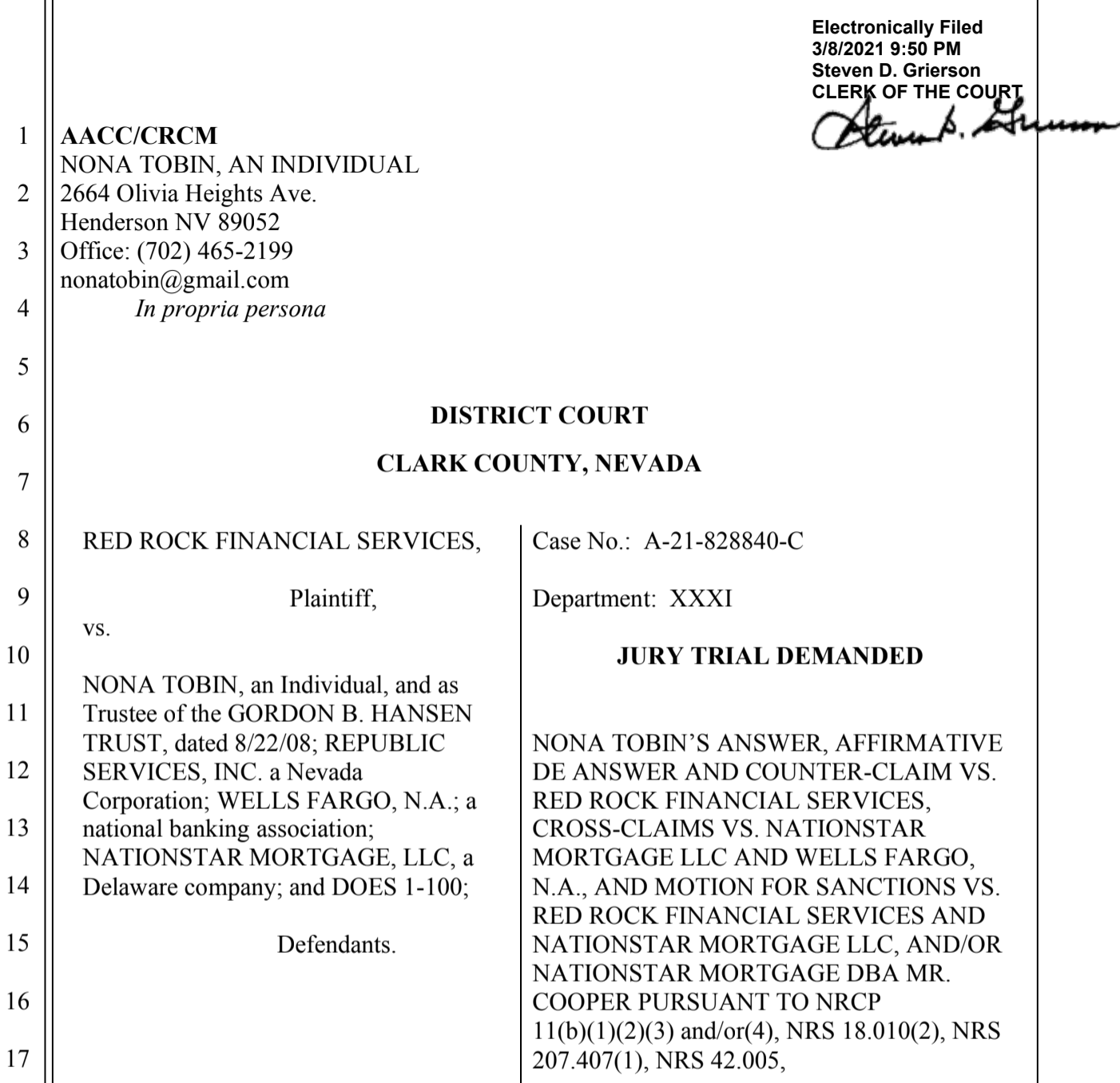Nevada Commission on Judicial Discipline Complaint
Download this single-page NCJD letter. It includes all 16 attachments listed below are part of one PDF: 2012-026 NCJD NEVADA COMMISSION ON JUDICIAL DISCIPLINE CASE
Owners should ALWAYS come first!
Download this single-page NCJD letter. It includes all 16 attachments listed below are part of one PDF: 2012-026 NCJD NEVADA COMMISSION ON JUDICIAL DISCIPLINE CASE
It’s against the law for anyone to bully or to create a hostile environment for anyone in a Nevada HOA. NRS 116.31184 Threats, harassment and other conduct

Really, I’ m asking. I don’t know the answer. I just know I’ve been in litigation for five years because they aren’t working for the
Or, anyway, that was the threat, before… Contact13’s Darcy Spears highlighted Sun City Anthem’s excessive executive compensation on the “HOA Hall of Shame” on Channel 13
When I was 12, my mother was killed in an United Airlines plane crash, leaving by father bereft with six kids ages 5 – 16
Self-management is right. Implementation is wrong. Mr. Fox, Esq., has been hired to watch the chickens. The family dog has been left alone with the owners’
We are all more irrational than we think I don’t know if anybody clicked on the links to psychological studies in my last blog about the
What’s up with the Ombudsman? Several people have told me that their NRED complaints of GM election interference were summarily rejected without satisfactory investigation or
After a relaxing couple of weeks in Cabo, I have been immediately hit by how badly SCA homeowners are being treated by our highly compensated